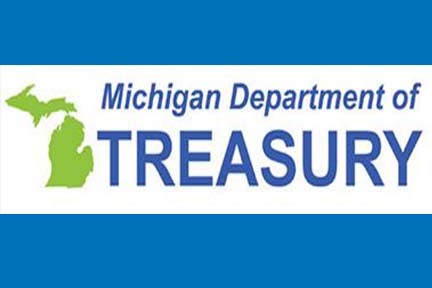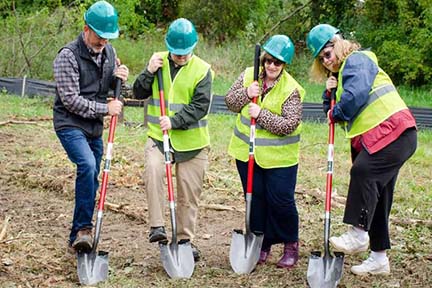
Michiganders Recognized for Asset Management Excellence
FOR IMMEDIATE RELEASE Contact: Ron Leix, Treasury, 517-335-2167 Michiganders Recognized for Asset Management Excellence at State’s First-Ever 2024 Integrated Infrastructure ConferenceOver 200 experts, government officials and industry leaders gather to learn about asset management best practicesGRAND RAPIDS, Mich. – Individuals and agencies demonstrating excellence in infrastructure asset management were recognized at the state’s first-ever 2024 Integrated Infrastructure Conference in Grand Rapids, held Aug. 13 and 14 at the L.V. Eberhard Center at Grand Valley State University. Hosted in partnership with the Michigan Infrastructure Council, Transportation Asset Management Council (TAMC) and the Water Asset Management Council (WAMC), more than 220 asset management professionals, local government officials and industry leaders were in attendance. “The awards presented at the first-ever Integrated Infrastructure Conference highlight the critical role of asset management in ensuring that our infrastructure investments deliver long-term benefits for communities across the state,” said Palencia Mobley, P.E., chairperson of the MIC. “Asset management is the key to creating a sustainable future where our communities are connected, our natural resources are protected and our economy is resilient.” Awards given at the 2024 Integrated Infrastructure Conference include: MIC Asset Management Ambassador Award: John Weiss, Exec. Director, Grand Valley Metropolitan Council For the first time, the MIC presented the Asset Management Ambassador Award to John Weiss, executive director of the Grand Valley Metropolitan Council. Weiss was recognized for his leadership in accelerating asset management practices throughout his community and the state. Weiss was a driving force behind efforts to start the Asset Management Champions program in 2021 to help educate communities with accurate and trusted information to support effective infrastructure decisions. The Asset Management program has now grown to have over 500 graduates statewide in Michigan and over 70 counties have asset management champions. Weiss has extensive experience in the asset management sector, having previously served as chairperson of the MIC and the Kent County Road Commission. Weiss also served on the West Michigan Regional Prosperity Alliance, the 21st Century Infrastructure Pilot for West Michigan and was the Township Supervisor of Cannon Township. Over the course of many years, Weiss has continuously contributed to improving infrastructure planning and sustainability in Michigan.
MIC Chairperson, Palencia Mobley, P.E., presenting John Weiss with the Asset Management Ambassador Award TAMC Organizational Achievement Award: MDOT, Bureau of Bridges and Structures Ancillary Structures Program The Organizational Achievement was given to the Michigan Department of Transportation (MDOT), Bureau of Bridges and Structures for their Ancillary Structures Program. This program complements the MDOT Transportation Asset Management Plan and is one of the few in the nation that integrates ancillary structure asset types in the management of planning and design processes. The Program is creating a new standard in MDOT’s funding strategies for public roadway stewardship and enhancing road users’ safety and quality of life.
Mike Halloran, Structure Program Division Admin., Bureau of Bridges and Structures, MDOT and Terry Johnson, HNTB. TAMC Carmine Palombo Individual Achievement Award: Rick DeVries P.E., Asst. City Engineer, City of Grand Rapids The Carmine Palombo Individual Achievement Award was given to Rick DeVries, P.E., Assistant City Engineer from the City of Grand Rapids. DeVries has shown great leadership in asset management and continues to advocate for transportation asset management and successful strategies. Devries played a critical role in the City’s 21st Infrastructure Task Force in 2002 and has since developed investment and planning strategies to improve the system of transportation assets in Grand Rapids.
Rick DeVries P.E., Asst. City Engineer, City of Grand Rapids and receiving TAMC Carmine Palombo Individual Achievement Award from TAMC Chair, Joanna Johnson. The 2024 Integrated Infrastructure Conference was a significant step in fostering a culture of collaboration in Michigan’s infrastructure planning. The two-day event provided education opportunities on best practices, covering sectors such as energy, communications, water and transportation. Attendees participated in sessions on topics ranging from infrastructure resiliency to artificial intelligence in infrastructure and data-driven asset management, positioning Michigan as a leader in forward-thinking infrastructure planning. About the Michigan Infrastructure Council Cultivating partnerships that strengthen Michigan’s Infrastructure to provide the foundation for public and environmental health, economic prosperity and quality of life. |












